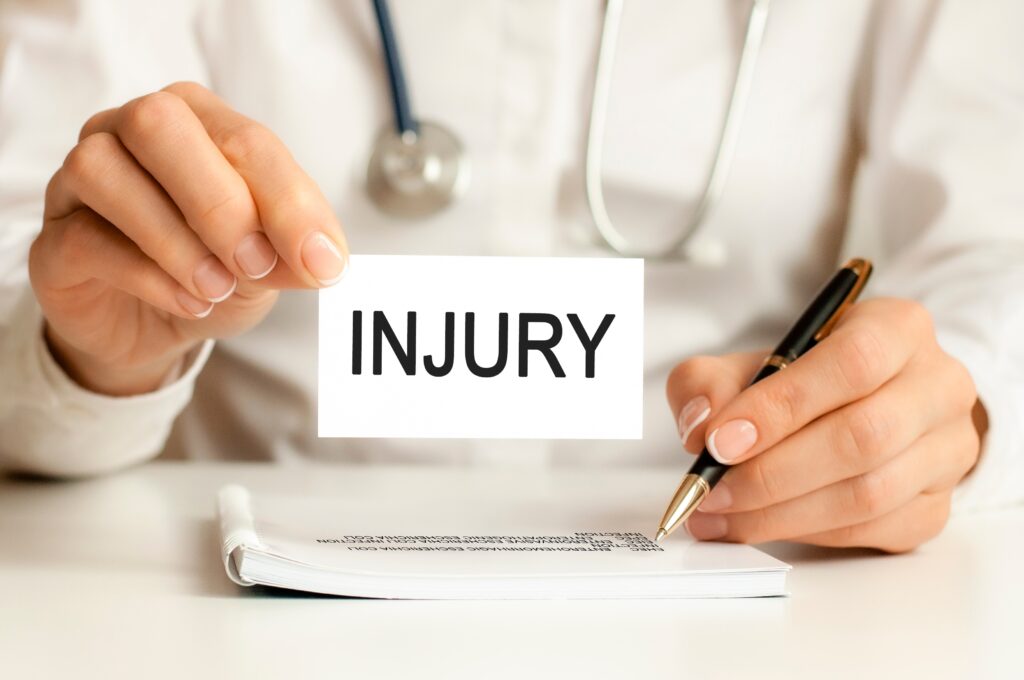Sustaining a head injury can be a life-altering event, affecting not only the victim but also their families for potentially the rest of their lives. This type of injury happens in an instant, but can result in significant medical expenses, lost income, and emotional distress for years following an accident. If you or a loved one suffered a head injury due to someone else's negligence, you may be entitled to compensation for your losses. Such compensation cannot take away the struggles of your head injury, but it can provide support as you continue your medical treatment and physical and cognitive recovery from your injury. It can help head injury victims to know the factors that commonly determine the value of a head injury claim. These values can vary widely depending on individual experiences, and insurance companies regularly undervalue head injuries. Seeking the assistance of a Tacoma personal injury attorney is critical to ensure you receive the compensation you deserve following this type of injury.
What is a Head Injury?
A head injury is any damage or trauma sustained to the head, affecting the skull, brain, or surrounding tissues. Many instances of head trauma lead to traumatic brain injuries (TBIs), with varying symptoms and long-term effects. Common head injuries include skull fractures, contusions, hematomas, and diffuse axonal injuries. Depending on the severity, head injuries can lead to cognitive impairments, motor function problems, and emotional disturbances.What Causes Head Injuries?
Head injuries can occur in various situations and due to different causes. Some common causes of head injuries include:
- Car accidents: Motor vehicle accidents are one of the leading causes of head injuries, mainly when there is a collision or sudden impact.
- Slip and fall accidents: Falls are a common cause of head injuries, especially among older adults.
- Workplace accidents: Certain work environments, such as construction sites or factories, pose a higher risk of head injuries due to falling objects or hazardous conditions.
- Sports-related injuries: Contact sports, such as football or soccer, can result in head injuries due to collisions or blows to the head.
- Acts of violence: Assaults or physical altercations can lead to head injuries caused by punches, kicks, or attacks with weapons.
Who is Liable for Head Injuries?
Determining liability in head injury cases is necessary for establishing who is responsible for the injury and who should be held accountable for compensation. Liability can vary depending on the circumstances of the incident. Potential parties who may be held liable for head injuries include:- Negligent drivers: The at-fault driver may be held responsible if a motor vehicle accident caused a head injury.
- Property owners: In slip and fall accidents, property owners or managers may be liable if they fail to maintain safe premises or warn visitors of potential hazards.
- Employers: In workplace accidents, employers may be responsible for head injuries if they fail to provide a safe working environment or adequately train employees.
- Sports organizations: If a head injury occurs during a sporting event, the organization may be held responsible if it fails to take appropriate precautions to protect the participants.
- Criminal offenders: In cases of assault or violence, the person who committed the crime may be held responsible for any resulting head injuries.
Why Seeking Compensation for Head Injuries is Imperative
When you or your loved one suffers a head injury, seeking compensation is not only essential for your immediate needs but also for your long-term well-being. Here are some reasons why pursuing a head injury claim is imperative:- Medical expenses: Head injuries often require extensive medical treatment, including hospital stays, surgeries, medication, and rehabilitation. Seeking compensation will help cover these costs and ensure you receive the necessary treatment without financial strain or going without the vital care you need.
- Lost income: Head injuries can lead to temporary or permanent disability, resulting in the inability to work. Compensation can help replace lost wages and provide financial stability during your recovery.
- Long-term care and support: Severe head injuries may require ongoing care and support, such as home healthcare, specialized therapy, or assistive devices. These costs add up quickly. Compensation can cover these expenses, ensuring you receive the necessary care to improve your quality of life.
- Pain and suffering: Head injuries can cause physical and emotional pain and suffering. Compensation can provide a sense of justice and acknowledgment for the pain endured while holding the responsible party accountable.
- Future implications: Some head injuries may have long-term consequences, affecting your ability to enjoy daily activities, maintain relationships, or pursue career opportunities. Compensation can help mitigate these future implications and provide financial security.
Damages in Head Injury Cases
Determining the worth of a head injury claim involves evaluating various factors and damages incurred by the victim. These damages can be divided into two categories:Economic Damages
Economic damages include quantifiable losses that have a direct financial impact. Common economic damages in head injury cases may include the following:- Medical expenses: This includes hospital bills, doctor visits, medications, surgeries, rehabilitation, and any other related medical costs.
- Lost income: Compensation for the income lost due to the inability to work during the recovery period.
- Reduced earning capacity: If the head injury results in a reduced ability to earn income in the future, compensation may be awarded for the estimated earning potential that has been affected.
Non-Economic Damages
Non-economic damages are subjective and reflect the intangible losses suffered by the victim. These damages may include the following:- Pain and suffering: Compensation for physical pain, emotional distress, and psychological trauma endured as a result of the head injury.
- Loss of enjoyment of life: Compensation for the loss of ability to participate in activities and enjoy life to the fullest.
- Loss of consortium: If the head injury has impacted relationships with spouses or family members, compensation may be awarded to compensate for the loss of companionship or support.
Punitive Damages
How Much is a Head Injury Claim Worth?
If you or a loved one has suffered a head injury, you may be wondering how much your claim is worth. Determining the value of a head injury claim is a complex process that considers various factors. You should consult with an experienced personal injury attorney with experience in head injury cases to accurately assess the value of your claim. One of the key factors that influence the value of a head injury claim is the severity of the injury. The more severe and debilitating the injury, the higher the claim's potential value. However, remember that every head injury should be considered a serious injury with the potential for devastating effects. Head injuries can often lead to long-term effects and disabilities that significantly impact a person's life. These effects can include cognitive impairments, memory loss, personality changes, difficulty concentrating, and emotional disturbances. The severity and permanence of these effects will influence the value of the claim. Expert medical opinions and assessments are often necessary to establish the extent of the long-term impact and disability, which, in turn, contributes to the overall value of the claim. In addition to the severity of the injury, other factors that may impact the value of a head injury claim include the damages the victim suffers. To accurately assess the value of a head injury claim, it is important to gather all relevant medical records, documentation of expenses, and evidence of the impact the injury has had on the injured person's life. An experienced attorney will investigate the circumstances surrounding the injury, consult with medical and financial experts, and calculate the potential financial damages. They will also consider the jurisdiction and the specific guidelines for personal injury claims in that area. Navigating the legal process and determining the value of a head injury claim can be overwhelming, especially while dealing with the physical and emotional impact of the injury. Retaining a personal injury attorney will ensure you have a knowledgeable advocate, fighting for your rights and helping you receive the compensation you deserve.The Importance of Hiring a Personal Injury Lawyer After Sustaining a Head Injury
 Pursuing a head injury claim can be overwhelming, especially when dealing with new physical and emotional challenges. Hiring a personal injury lawyer experienced in handling head injury cases is beneficial for several reasons:
Pursuing a head injury claim can be overwhelming, especially when dealing with new physical and emotional challenges. Hiring a personal injury lawyer experienced in handling head injury cases is beneficial for several reasons:
- Knowledge and experience: Personal injury lawyers possess the knowledge and experience needed to navigate the ins and outs of head injury claims. They understand the legal processes, statutes of limitations, and how to build a strong case on your behalf.
- Case evaluation: A personal injury lawyer will evaluate the details of your case to determine the strength of your claim. They will assess the damages incurred, gather valuable evidence, and interview witnesses to build a comprehensive and successful case.
- Negotiation skills: Insurance companies often minimize payouts to maximize profits. Having a personal injury lawyer on your side ensures an experienced negotiator is aware of the insurance company's tactics and will fight for your rights and push for fair compensation.
- Legal representation: If your case goes to trial, a personal injury lawyer will provide the necessary legal representation to present your case to the court effectively. They advocate for your rights, challenge opposing arguments, and ensure your voice is heard.
- Access to resources: Personal injury lawyers have access to a network of professionals, including medical experts and accident reconstruction specialists, who can provide critical support and strengthen your case.
- Peace of mind: Dealing with a head injury and the legal process simultaneously can be overwhelming. Hiring a personal injury lawyer lets you focus on your recovery while knowing your legal rights are protected.
